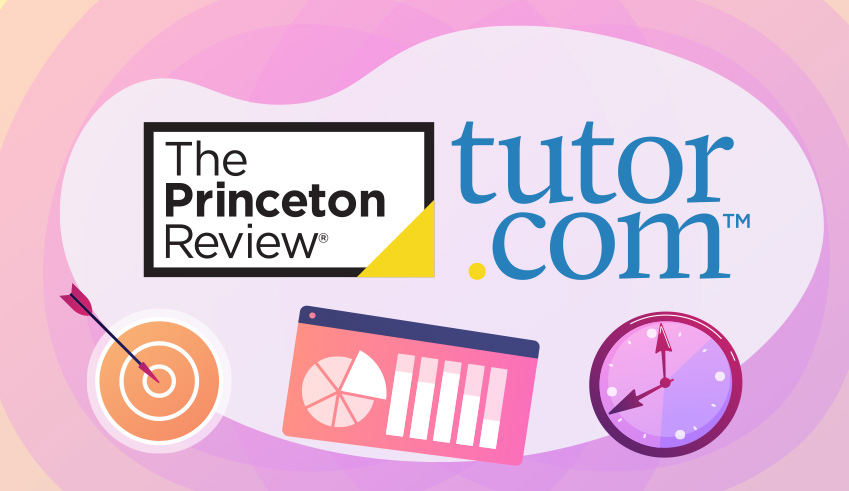Articles Hub |
Return to Main page

STUDENT SUCCESS
High-Dosage Tutoring and the Powerful Partnership of Tutor.com and The Princeton Review®
Learn about the synergy of two education giants in the development of high-dosage tutoring, a research-backed tutoring program.
In the ever-evolving world of education, it's crucial to identify effective interventions that will help students succeed academically. High-dosage tutoring, a research-backed program to help students make accelerated learning gains, is powered by the strengths of Tutor.com and The Princeton Review, two education giants with a combined 65-year track record of promoting student achievement.
The best of both worlds
The Princeton Review has been synonymous with gold-standard test prep and college admissions success for more than four decades. We have long known that standardized tests measure just one thing—how well students do on standardized tests. And we have developed best-in-class test prep to help learners earn admission and merit-based financial aid at their dream colleges. Tutor.com helps schools scale equitable student support by providing expert tutoring with proven instructional methodologies that align with classroom learning—for 25 million sessions and counting. Our high-dosage tutoring program draws on the expertise of both companies and utilizes our award-winning technology.
Research-based approach
High-dosage tutoring is not just a catchy phrase—the hallmarks of high-dosage tutoring are backed by extensive research from the Annenberg Institute at Brown University. The program has six key characteristics:
- Frequency: Tutorials are delivered three times a week, integrated into the school day.
- Small group instruction: Groups consist of two to four students, ensuring personalized attention.
- Assessments: Formative and summative assessments enable teachers to chart learner progress, and help tutors tailor students’ Personalized Learning Plans.
- Alignment with state standards: The program supports each school’s learning goals and can work seamlessly with any district in the United States.
- High-quality content: The program is curriculum-driven, using The Princeton Review’s expert-created instructional materials—or the curriculum of the school partner.
- Relational learning: Each tutorial group maintains a consistent tutor to foster relational learning between the tutor and students.
A comprehensive offering
High-dosage tutoring is part of a Multi-Tiered System of Support (MTSS) that helps schools and districts meet the academic needs of all students. Available supports include…
- High-dosage tutoring: This targeted support is geared toward closing achievement gaps and helping at-risk students make significant, accelerated learning gains.
- On-demand tutoring: Available 24/7 in more than 200 subjects, this allows students to get empowering help at their moment of need. Read about the difference between on-demand and high-dosage tutoring.
- Test preparation: Self-paced and LiveOnline instruction both help students excel on the digital SAT® and ACT® exams.
- College admissions support: Tailored assistance helps students map out—and follow—their ideal postsecondary path.
Personalized education is and has long been key to student success, and high-dosage tutoring takes individualized support and makes it intensive, too.
By combining the expertise of Tutor.com and the Princeton Review, aligning with research, and offering a wide range of services, this educational solution is poised to make a significant difference in the lives of students, families, and partner institutions.
Want to learn more about high-dosage tutoring? Watch our microwebinar!
SAT® is a trademark registered by the College Board, which is not affiliated with, and does not endorse, this product. All tests are registered trademarks of their respective owners. None of the trademark holders are affiliated with The Princeton Review or these products. The Princeton Review is not affiliated with Princeton University.


